
So said Benjamin Franklin apparently, but I much prefer the extended version by Steve Earle who added:
For poker players, paying your taxes is a pain in the butt – often because you have the choice Earle did of ‘not bothering’! Of course, the consequences can vary from huge fines to even bigger jail terms, so let’s take the view that they are a necessary evil. How do taxes vary around the world for poker players?
In this guide we cover poker taxes for the following destinations:
 USA
USA  United Kingdom
United Kingdom Belgium
Belgium Italy
Italy Germany
Germany Spain
Spain France
France Norway
Norway Sweden
Sweden Denmark
Denmark Canada
Canada Australia
Australia Thailand
Thailand Brazil
Brazil Costa Rica
Costa Rica Mexico
Mexico
USA 
As an example, as noted on PokerTube back in November, the WSOP Main Event winner Joe McKeehen took down $7,683,346 for his final table victory. The taxman, in this case the US Internal Revenue Service (IRS) took a huge chunk of this: a Federal Income Tax of $3,073,240 when added to his self-employment taxes.
Below - Joe Mckeehen saw a healthy chunk of his $7.6M WSOP win wiped by tax.

Added to this were a Pennsylvania state income tax of $235,879, a local township ‘earned income tax’ of $76,833 paid to North Wales Boro.
Taken together, that amounts to over 44% of his winnings! The IRS alone scooped $8,467,091 out of the $24,806,976 awarded at the final table!
Whose responsibility is it to report winnings?
For quite a few years now, it has been the tournament organizer’s place to report tournament winnings of more than $5,000, usually on an IRS Form W-2G. Failure to do so can lead to problems, so it is pretty much enforced.
To enable this, winners have to provide their social security number when cashing out, and failure to do this will cost an extra 3% of tax on the individual – 28% instead of the usual 25%.
By law, they must report all their winnings on their federal income tax returns. This rule applies regardless of the amount and regardless of whether the winner receives a Form W-2G or any other reporting form.
Liberty comes at a price

So, to the details: what do you have to do exactly?
Firstly, decide whether you are a professional gambler or a recreational player. If your main income comes from poker, you’re a professional; if it’s just a financial side-line, you’re not.
As a professional:
As of 2010, pro gamblers can deduct ‘ordinary and necessary’ expenses from their gross winnings. Paying tax only on the net income. So, if you make $100K annually, but spend $40K on hotels, flights, buy-ins, etc. you only pay tax on the remaining $60K.
Keeping records and receipts for EVERYTHING is essential! Audits which you can’t produce documentation for will be tiresome and costly, so make sure that hotel payments, ATM receipts, restaurant bills and anything else you use as part of your ‘professional poker business’ is filed away for the IRS to look at.
For cash-game players, things probably feel a little looser in this respect – it’s up to you to keep detailed logs of your sessions, winning and losing of course. Again, if you don’t, it’s on your head should the taxman come calling! There are software and apps available to help you with this.
As a recreational:
Most recs by definition have another, bigger, source of income – one which will likely not be subject to audit in the way pro gamblers quite often are.
Again, what you declare is up to yourself, but if your poker or gambling income is small it probably makes more sense just to be honest! There may also be benefits to filing under your other occupation/income as deductions and tax credits can sometimes work out more attractive.
Other casino losses
It may seem surprising to some, but losses at the tables and slots can be deducted from your poker earnings before tax is taken in most states, so again a good system of paperwork/records is highly recommended.

Staking
Another important point to note is that tax is paid by the staker on whatever percentage they have taken of your winnings. Make sure you send them the relevant form (1099) and you only declare your part of the winnings.
UK 
The basic answer is…NO!
Poker, casino gambling and sports betting are all considered to be tax-free, and have been for the last decade. That’s not to say there is no tax levied on these industries, but in the UK it is the operators who have to pay 25% tax on their income.
Below - London, probably the most popular European country for online poker players outside of Malta.
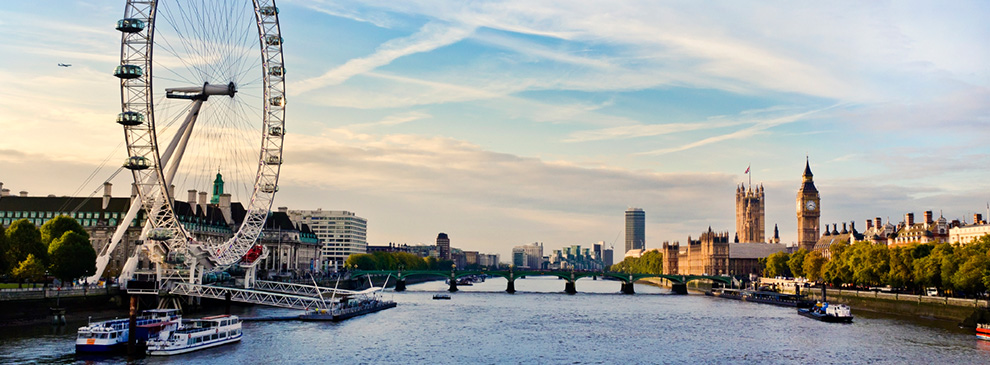
This includes online poker sites, the majority of which operate outside of UK, who were added to the gambling laws in 2014. If their customers reside in the UK, the company is liable to pay tax. This hasn’t had a huge effect on UK players though, who are definitely much better off than their counterparts when it comes to taxation.
Another bonus for UK players is that, even if they play in the USA and win, they are exempt from the taxes which US players have to pay!
Tax Treaties
There are a few countries which have this kind of Tax treaty with the USA, and it can significantly affect the actual earnings and winnings of players!
Belgium 
As an example, look at this one from last year’s WSOP November Nine final table, broken down by our money friends at Taxabletalk,com:
Below - Pierre Neuville ran good on more than one occasion, managing to avoid tax on his $1.2M WSOP winnings entirely!

Italy 
Compare it to their analysis of Federico Butteroni’s final table winnings. “The eighth place finisher was Federico Butteroni of Rome, Italy. While he won $1,097,056, he’ll only get to keep $571,566 (a tax bite of 47.90%).
The US-Italy Tax Treaty exempts gambling winnings from US taxation, so none of his winnings were withheld for the IRS.
However, Italy does tax gambling winnings from non-European Union countries. (There is current litigation regarding taxes owed for winnings within the E.U., but it appears that, for the present, such winnings are not subject to taxation.)
The tax appears to be a flat 47.90%. Mr. Butteroni faces the highest tax bite by percentage of any of the final table participants.”
Below - The Italian stallion Butteroni has every right to show a brooding demeanour...

However, you still need the proper paperwork for this type of situation.
The casino or cardroom will probably withhold the taxable % of your winnings, so you need to have your passport to hand and fill out a W2-G form (US Wage & Tax Statement) which will release these funds.
You’re unlikely to have to do this for anything less than $5,000 of winnings, but easier still is to pre-empt this by filling out what is known as a W8-BEN form.
The Rest of Europe
As we saw above, Belgium and Italy have widely differing taxation laws, Italy taxing live gambling winnings but not online earnings! Let’s take a look at some of the other major players in the European market.
Germany 
This is a tricky one, as gambling is generally considered ‘a game of chance’ when it comes to the gambling laws and courts, but as a game of skill by the financial and taxation laws, which means that players are liable to being taxed on an ‘illegal’ profession or hobby!
In practice, the Germans very rarely prosecute players for their gambling or their connected taxation practices– and problems with the EU legislation on such matters have kept this as a grey area for a long time.
Generally speaking, recreational players are fine, professional players are supposed to pay tax on their winnings but, in reality, this might not always be the case.
Spain 
The Spanish tax laws are among the most restrictive world-wide for poker players.
A nationwide probe was launched back in 2012, to “scrutinize the tax affairs of successful poker players, who are required to report and pay income tax on their winnings,” reported the CanarianWeekly newspaper, adding “Tax investigators are said to be looking back as far as 2010, cross-referencing publicly-available tournament results databases, both for live and online tournaments, against Spanish players' tax returns to identify irregularities.”
The Spanish player base has been severely affected, so much so that even EPT Barcelona events are bereft of a strong local contingent! As poker pro Leo Margets told Pokerlistings, “They have put huge taxes on poker winnings in Spain, and they’ve done it completely wrong.”
Below - EPT Barcelona has been left bereft of a large local contingent due to high taxes

Of course, when authorities crack down too hard on the financial well-being of gamblers, we all know the result…
“Cash games, on the other hand, cannot be traced back so now players prefer to sit at the cash-game tables and the 100th EPT does not have the number of Spanish players it deserves,” explained Margets, revealing, ”This is also why the number of players keeps dropping in Spain. Legislation is killing the game. So now we have the biggest EPT of all times here, and the Spanish are not playing. It’s really sad.”
Now that you know what to expect in general, here’s the more detailed breakdown courtesy of Expatica.com…
“As a Spanish resident, you will need to submit a Spanish tax return and pay Spanish income tax, at progressive scale rates, on your worldwide income if:
- your annual income from employment is over EUR 22,000;
- you are self-employed or run your own business;
- you receive rental income of over EUR 1,000 a year;
- you have capital gains and savings income of more than EUR 1,600 a year
it is your first year declaring tax residency in Spain.
Below - The warm Spanish coast comes at a price! 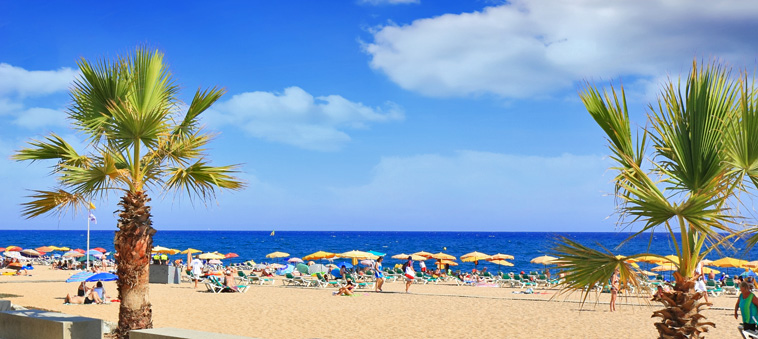
You will have to declare all overseas assets worth more than EUR 50,000 (using Modelo 720). Your taxable income is the income left after deductions for social security contributions, pension, personal allowance, professional costs, etc. [Note though, that this conflicts with the ‘poker taxation laws above. You are very limited in what can be used for tax-deductible purposes as a professional gambler.]
Non-residents of Spain
If you live in Spain for less than six months (183 days), you are classed as a non-resident and will only be taxed on the income earned in Spain. Your income is taxed at flat rates with no allowances or deductions.”
Dual taxation
This could be very useful to know, as “Spain has signed many treaties with other countries to avoid double taxation (ie. paying tax in your home country and in Spain). For an up-to-date list of treaties, see the Agencia Tributaria, the Spanish tax authority.”
The following site is also excellent for poker players planning to relocate to Spain (however misguided that might be given their crackdown!)
France 
The good news for French-based poker players is that pretty much all forms of gambling are legal and regulated.
The bad news is that the laws and taxation are draconian, described by Calvinayre.com as “the model of how not to regulate the industry. It’s over-taxed and over-regulated. The tax regime is heavy on both the players and operators and that doesn’t include the 33% corporate tax rate.”
Well, that sums it up pretty well and helps to explain why almost half of the gaming sites which acquired licences since 2010 have since folded. There are options though, with no restrictions on playing on sites outside of France. However, it’s a segregated market and suffers from liquidity issues as a result.
From the taxation viewpoint, you’ll be paying an extra 2% per pot on top of the rake, which is already an excessive 7.5%+. Sportsbetting is taxed even higher!
Ok, so for poker high-rollers (earning over $250K per year) you can expect to pay an extra 3% on top of your declared income tax to pay for austerity measures. Not so nice.
Below - Bertrand 'Elky' Grospellier, the most famous French poker player in recent times
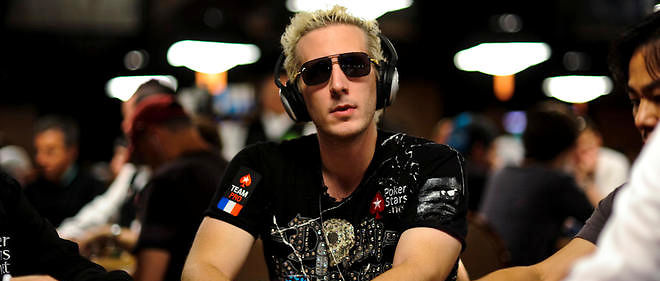
According to Angloinfo.com, “If the gross annual income is below €32,900, it will usually be assessed under the Micro-BNC regime which allows the taxpayer to deduct a flat 34% for expenses, so that only 66% of the gross income is taxable. Otherwise they will be taxed under a regime whereby the actual income net of expenses of the business is taxed.”
Scandinavia
The laws and taxation differ across the Scandinavian countries. Let’s have a quick look firstly at Norway…
Norway 
Not the best country in the world for poker and gambling (most of it is illegal outside of government-controlled casinos and lotteries) but the legal side of things hasn’t really stopped Norwegians from finding ways to play poker and other games.
If you’re doing things by the book here (which basically means playing illegally and paying your tax legally!) then you’re looking at very heavy taxation indeed.
When Felix Stephensen finished second to Swede Martin Jacobson in the World Series of Poker Championship in Las Vegas two years ago, he basically had to split his millions with the Norwegian tax authorities, despite living in London.
Below - Felix Stephensen had to split his millions

As Norway business lawyer, Trond Erik Andersen, explained, the tax regulations are clear. “Poker prizes are specifically mentioned in the ABC of tax regulations. It says that individual prizes of more than 1,000 kroner ($150) are eligible for tax, but there are possibilities to deduct expenses, like starting fees, that relate directly to poker tournaments.”
Basically your average recreational player would face a 27% tax bill, but as a professional poker player Stephensen had to pay as a self-employed person.
Andersen explained:
Pretty brutal!
For online poker, the Norwegians passed their own version of the UIGEA act, basically clamping down on the financial transaction aspect of online play. There are obvious ways around this, but if you go the legal route expect to pay heavily in taxes for it.
For much more detailed info on Norwegian tax laws, visit their government run site here.
Below - Beautiful fjord in Norway

Sweden 
A government crackdown in 2014 pretty much put an end to the online high-stakes crew who were raking in millions online and evading tax on their earnings ($34.9 million being the figure bandied about!) with fines reported to be in the 6-figure ballpark (in $US!).
Below - Martin Jacobson won $10 million at WSOP

In any event, at present the Swedish government charges a massive 30% of tax on gambling winnings from casinos and sites outside the US. Some tournament can see as much as 50% tax on them, which makes it similar to the Norwegian model (i.e. not the best place to be gambling and paying tax).
Again, more detailed info on Swedish taxation can be found here.
Below - Stockholm at sunset

Denmark 
Last year saw some major legislative changes regarding online poker in Denmark, but these did not affect the gaming taxes - online gambling operators face a 28% corporation tax coupled to a 20% tax on their gross gaming revenues.
As far as players go, as with the other Scandinavian countries, as long as you play on one of the regulated sites you won’t pay tax on your gambling earnings – the site is paying it for you much as happens in the UK also.
Below - Gus Hansen, famous poker pro from Denmark

The one thing you will have to do which is markedly different from most of other countries is to use what is called a NemID, similar to that used for banking and general taxation purposes in Denmark.
To get your NemID, you first need a CPR number - this stands for Centrale Person Register, which translates as the Civil Registration System, according to Internationalcommunity.dk. They state that, “A CPR number is a personal identification number which, among other things, facilitates accurate linkage between all Danish national registers. Your CPR number consists of ten digits.”
So, a well-regulated system, no tax on .de gambling winnings and a useful website here for those who need further details on taxation.
Moving away from the European continent, let’s take a look at….
Canada 
Canada is a very curious case in the world of poker taxation.
Basically, and this has legal precedent after two very interesting cases (Cohen and Radonjic) you won’t have to pay tax on your winnings unless the Canadian Revenue Agency can prove that you are a professional player ‘carrying on a business of gambling’.
Below - Daniel Negreanu, Canadian and one of the worlds most famous poker players

As the judgements on the cases mentioned made that almost impossible for the tax authorities to prove, you are practically scott-free when it comes to paying taxes in Canada at the moment!
There is a downside, of course, in that you can’t offset gambling losses against your tax bill (because you’re not paying one!) and there is no set-limit on earnings which would trigger such tax payments either.
Still, if you really feel like paying your taxes on winnings is for you (!), then visit this government site for more information on how to do so.
Below - Winter sunset in Canada

Australia 
Yet another of the safe havens when it comes to paying tax on your gambling earnings, Australia follows the UK model of taxing the operators while leaving the players alone!
This system seems to suit everyone – the government rakes in vast sums from the casinos and slot machines which proliferate, the operators turn a tidy profit in a gambling-obsessed nation, and gamblers can rest easy knowing that what they win is what they can spend.
Below - Famous Sidney Opera House

 Thailand
Thailand
In the Far East, Thailand is one of the most popular destinations for expats of all sorts, and for a huge variety of reasons. When it comes to playing poker and gambling, things are officially very regulated, but in practice not so restrictive.
As Onlinebetting.com explains:
Thailand gambling law is very easy to understand as far as gamblers (as opposed to those “offering gambling”) are concerned. In short: doing anything that may appear to be gambling (playing cards with no money involved even, or having gambling devices) and actual gambling – have penalties ranging from a 1,000 baht fine to one-year in prison.
Their professional gambling expert, who lives and plays in Thailand, continues: “In all my years involved in the Thai gambling industry, the closest I have heard of gamblers being jailed were the several times farang (foreigners) were detained and deported over poker.”
“While perhaps it does happen, my experience is that Thai people caught gambling are only fined and quite often the matter is settled with an on the spot payment to police. It is also my experience that the strict part of our gambling law applies not to players but rather to gambling den owners, junkets, bookies, agents and gambling banks.”
Below - Thai Poker House - Popular among groups of players who relocate to Thailand

From Pokerexpats.com we get this useful advice:
“But you should always keep in mind that online poker is illegal and as a result there are two pieces of advice for those who want to live in Thailand and play poker: Don’t ever talk about playing poker for a living. Don’t ever talk about playing poker for a living.”
So, with that important proviso out of the way, it’s clear that you’ll a) have to have a legitimate front for your gambling/poker activities and b) you’ll need a visa to operate in the country.
For a) teaching English is the easy option, or describe yourself as a self-employed writer/web designer or something similar. If it comes to ‘proving’ your income, almost any decent financial transaction on paper will pass muster. A bank statement which doesn’t show up where your poker winnings came from will do.
The visa ‘problem’ in b) can be easily solved with a little work on your part. Visitor visa extensions are readily available just across the borders in Laos and means that you can stay pretty much indefinitely.
For those who want to do things by the book and pay taxes, there is a great guide here but remember – gambling is illegal! Whatever you feel like you want to pay taxes on, it can’t be your poker or sportsbetting!
Below - Thailand is a home to some of the most beautiful beaches in the world

Latin and South America
 Brazil
Brazil
As one of the booming countries for poker, Brazil is a serious destination for poker players looking for a new life. But you have to know that it is an ultra-conservative country for gambling. Although there are many moves afoot to try to regulate and legalize online gambling (as in the US, it’s the budgetary arguments which might sway things in poker’s direction) it is still a long way off.
So, like in Thailand and other places, your online poker career will be ‘unofficial’ and your tax-paying will therefore follow the usual routes of a) not declaring it or b) declaring it as something else.
For those playing live tournaments the tax rate (which will usually be withheld from prizes by the organiser, at least in the bigger events like LAPT -Latin American Poker Tour) this amounts to 27.5% for Brazilian residents and 15% from residents of all other countries.
For cash game players (and online players wishing to pay tax of some sort, although obviously from a non-gambling profession) the governmental site is fine if your Portuguese language skills are up to it. Otherwise, check out this useful info which helps to explain the process in English. You’ll basically be paying a monthly tax bill calculated over a year’s earnings, and the rate varies – with three tax brackets from 0% up to 27.5%.
Below - Carnival in Rio de Janeiro
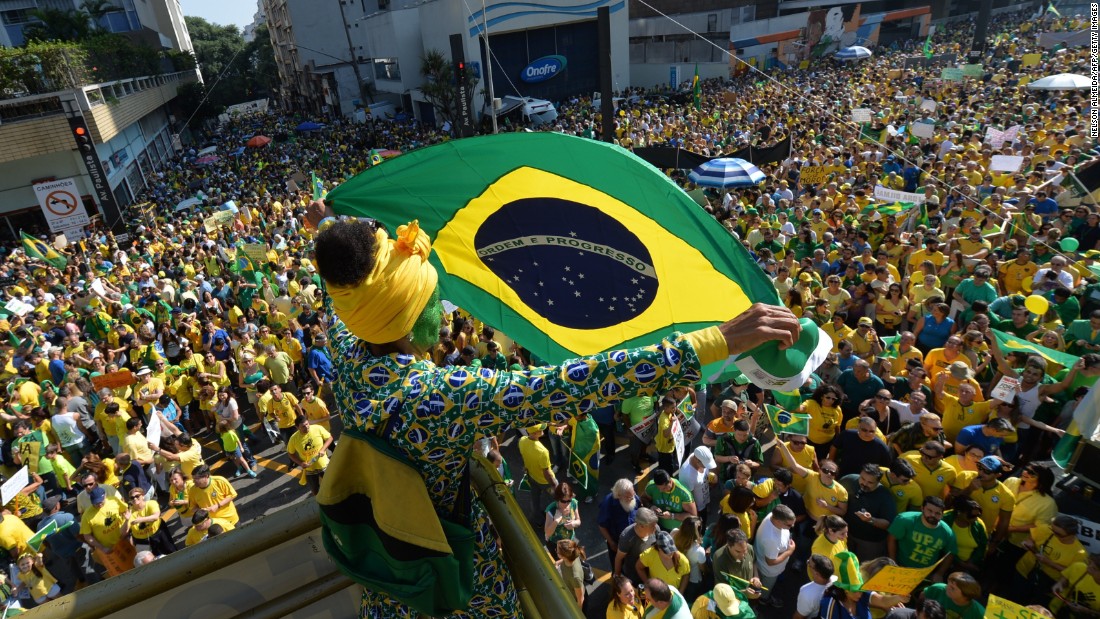
 Costa Rica
Costa Rica
This jungle-covered land with coasts on both the Pacific and Caribbean has long been a poker-players haven and heaven. Apart from the horror which Absolute Poker brought to the card-playing world from this small country, almost everything else makes it a perfect spot to indulge your poker passion and business.
The gambling market is almost completely unregulated, which has allowed hundreds of online sites to set up shop here, although many have closed over recent years.
For an individual, the lack of regulation means in essence that paying tax is a purely personal decision, and as Costa Rican laws do not tax income derived from a foreign source the chances are that you’re not even breaking the law by not paying anything if you are an online grinder.
Below - James 'James666' Sudworth is one of the US poker refugees who moved to Costa Rica

Internationalliving.com describes it thus:
They do add, however, that “You are still on the hook to the IRS or your home country’s tax authority however. For U.S. citizens, be sure to ask your tax professional about the Foreign Earned Income Exclusion, which exempts you from paying taxes from an overseas job or business if you qualify.”
Personal income tax would be 25% for most poker players, the figure for earnings of ¢7,160,000 (Costa Rican Colones) after deductions, which is about $13,500. Tax laws which allow for many reasonable deductions make it perfect even for those who move there and do want to pay taxes (yes, such people exist!)
Below - Volcano in Costa Rica

 Mexico
Mexico
Well, it is SOUTH of America! It’s also a huge draw for US-based poker players who have been struggling ever since Black Friday shut down most of their livelihood, forcing players to relocate. Mexico, just across the border, was a big draw.
Recently there have been plans to legislate and regulate the online industry which has resided in a very grey area for years. This, naturally, would lead to taxation, and possibly segregated player pools – and would be an absolute nightmare for the pros currently based there.
Still, it may be a ways off yet so let’s look at the here and now. For US citizens you have to pay U.S. income tax on part or all of the money you make, regardless of where you make it. Fortunately the IRS lets you offset your U.S. income tax with tax you pay abroad.
Below - Angel Guillen is famous Mexican poker pro
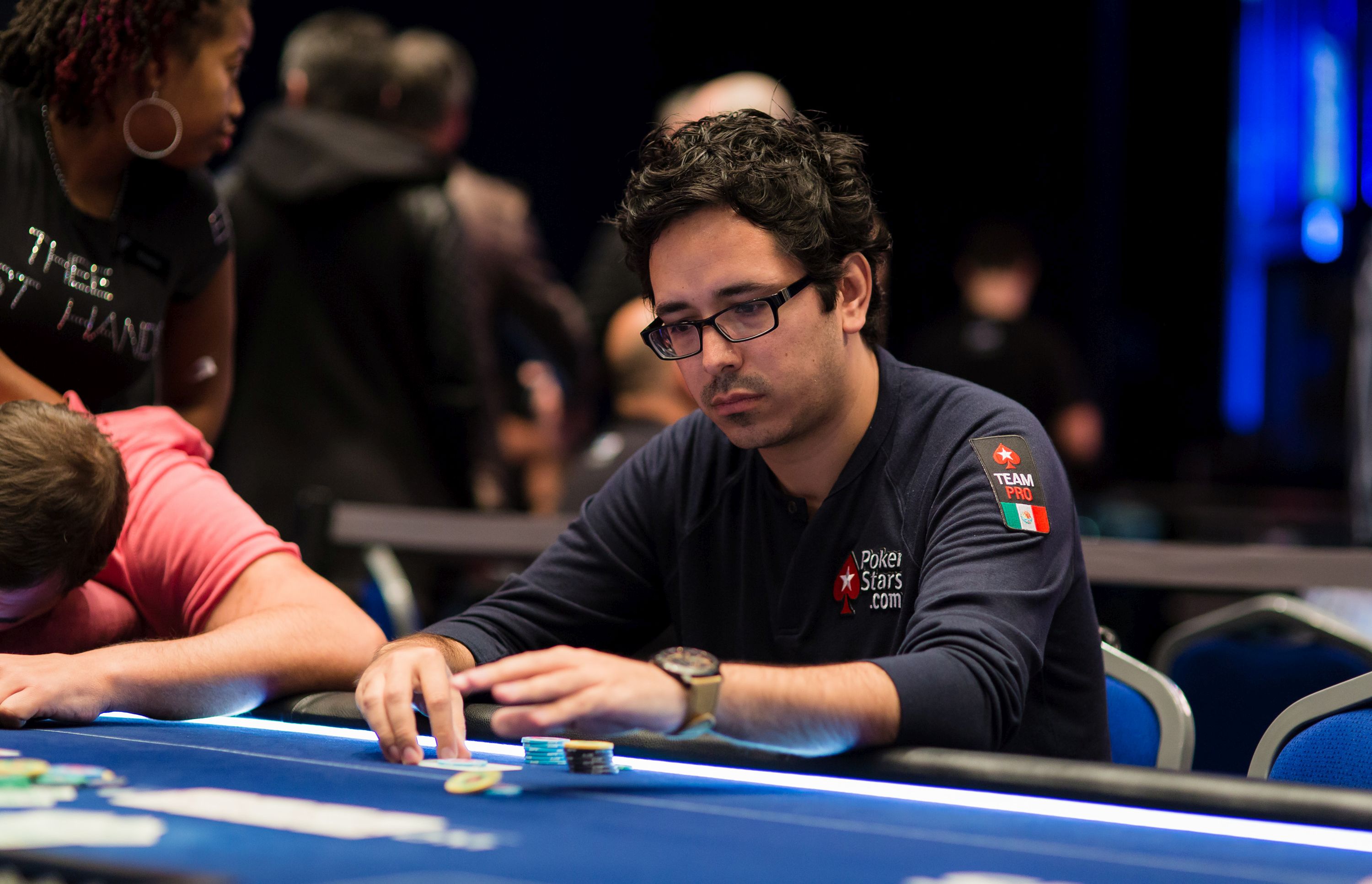
According to Angloinfo.com “The tax system in Mexico is complex and bureaucratic. It is advisable for anyone liable for income tax (ISR) in Mexico to engage the services of an accountant.”
They add that “When money is imported from overseas the Mexican tax authorities may ask for proof that tax has been paid on that money. Note that for income earned overseas, there are several tax treaties that may be applicable to avoid double taxation. For non-residents, only income obtained in Mexico is subject to taxation.”
Below - The Mexican Avenue of the Dead, seen from the Moon Pyramid

So, it’s a mixed bag really for poker players looking to make Mexico their base, particularly if the proposed legislation goes through at some point. It could end up with many more live venues and restricted online availability.
We hope you’ve enjoyed our ultimate poker taxes guide!
More Top Rated Content
Articles
- Procrastination and Poker
- How to Make a Poker Schedule - Tools You Can Use
- Mindful Breathing | Mental Poker Strategy
Coaching Videos

